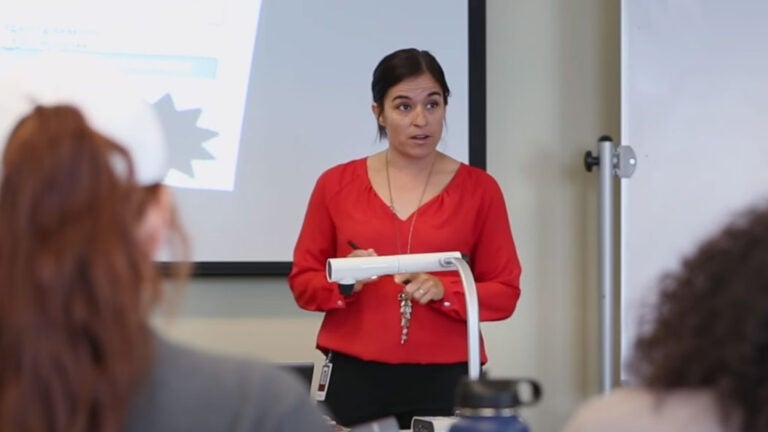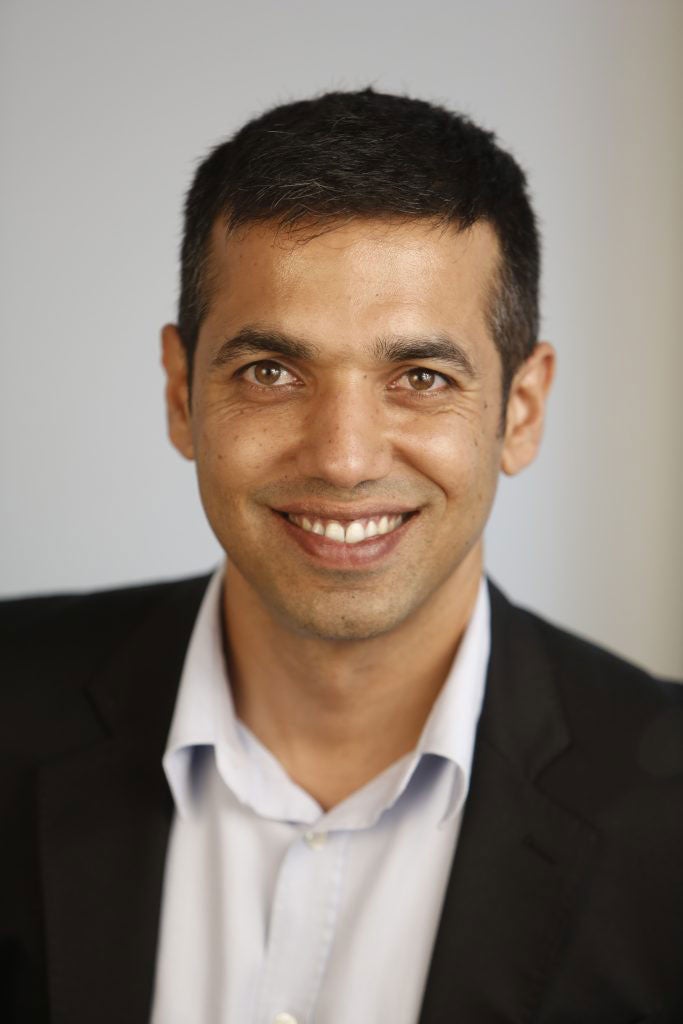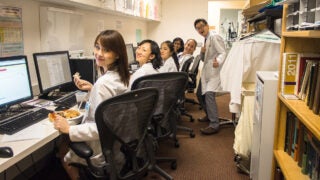
Researchers are using six sites for drive-through testing of 1,000 people. (USC Photo/Ricardo Carrasco III)
USC-L.A. County antibody testing may reveal when it’s safe to go back to work
Researchers are testing the blood of 1,000 randomly selected individuals for a study that could help determine a path to post-pandemic life.
As Americans wonder when COVID-19 infections may ease and when people can return to work, USC and Los Angeles County are conducting a study that could hold the answers.
Today and Saturday, researchers from USC and the county are testing the blood of 1,000 randomly selected individuals for COVID-19 antibodies for a study that could help chart the safest path toward post-pandemic life.

“To date, we have been testing only those who are symptomatic, which hasn’t told us much about the prevalence or true mortality rate of COVID-19 across a population,” said Neeraj Sood, professor and vice dean for research and faculty affairs at the USC Price School of Public Policy and university lead on the study. “The test will provide fundamental information about the deadliness of the disease, if policy measures like social distancing are working and also how long the pandemic is likely to last.”
Antibody testing can determine whether someone was previously infected with the new coronavirus and now, presumably, is immune. Such tests, combined with other tests to rule out current infection, could potentially identify people who can reenter the workforce with minimal risk of infecting others or getting infected themselves.
Additionally, a large population of healthy individuals with immunity could lessen the likelihood of continued widespread disease in the general population, a concept known as herd immunity.
Antibody testing will reveal new information about COVID-19
Recruitment for the study is closed. Participants for the USC-L.A. County study were recruited by email and telephone through a large proprietary database. The researchers identified six sites for drive-through testing. Preliminary results will be available by Wednesday.
The FDA just approved antibody tests for public health screenings under its emergency use authorization.
Participants will be able to receive their results within 24 hours by accessing an online portal using an anonymous code provided to them when they registered for the study. People who test positive for the antibodies will also be offered a second test to determine if they are currently infected.
Sood added that if antibody testing can help show that the death rate of COVID-19 is 10 times that of the flu, “then we should all be staying at home and making sure that we practice very strong physical distancing.” But if the true mortality rate of COVID is five times less than the flu, “then we don’t need to be doing that.”
The study also will examine differences in COVID-19 infection between men and women, different age groups and by race and ethnicity. Recent news reports have indicated that African Americans are hardest hit by the pandemic.
Spotty rollout of testing for COVID-19 infection among sick or symptomatic patients has resulted in an incomplete picture of the pandemic’s impact. To understand why that matters, Sood said, consider the flu. Flu’s mortality rate is around 0.1% — meaning that of everyone infected with the flu, tested or not, 1 in 1,000 die of it.
“If we only tested people who are hospitalized with flu-like symptoms, the mortality rate jumps 75-fold,” Sood wrote in The Wall Street Journal. “Similarly, with the coronavirus, testing only sick and symptomatic people will result in an overestimate of mortality, which would heighten fear and anxiety and worsen their economic effects.”
The study is a collaboration between USC, the Los Angeles County Department of Public Health, and Lieberman Research Worldwide. Paul Simon, chief science officer of the county’s health department, will lead the L.A. County team involved in the study. Jeffrey Reynolds, president and COO of Lieberman Research, will oversee the team conducting the sampling.



